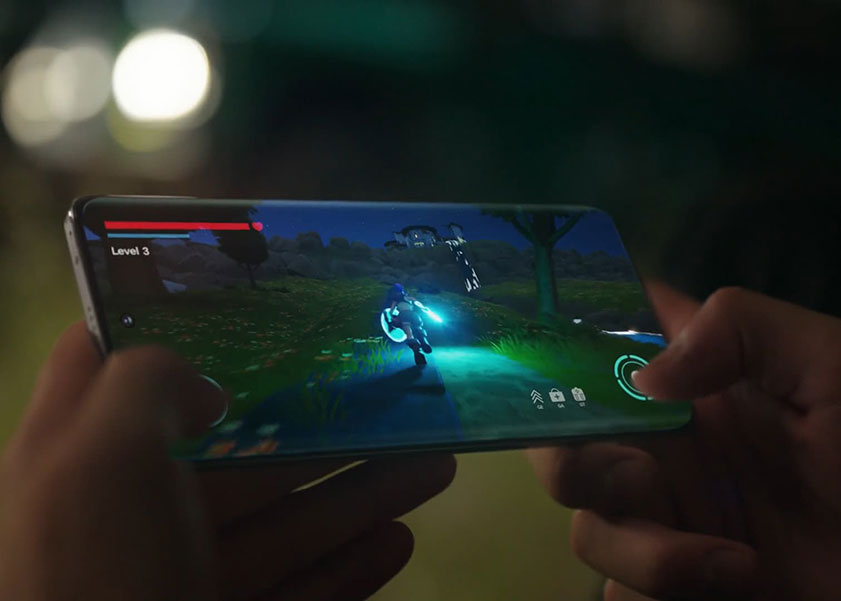TOP

我的荣耀 开启荣耀之旅
To log in to your account, you must first agree to the HONOR PLATFORM TERMS OF USE and HONOR Platform Privacy Statement. If you do not agree, you may only browse the site as a guest.

AI Gaming: Revolutionizing Player Experiences
In the world of modern gaming, artificial intelligence (AI) is becoming more crucial in many ways, it revolutionizes the gaming landscape by enhancing player interactions and game development processes. This article explores how the use of AI and games is shaping the scene, from realistic NPC behaviors to adaptive gameplay mechanics and better visual experiences. Dive into the transformative potential of AI gaming and learn how they're paving the way for more immersive and dynamic gaming experiences.
What Is AI Gaming?
AI in gaming makes games more exciting and realistic. It controls Non-Player Characters (NPCs), making them act and react in lifelike ways. In games like Red Dead Redemption 2 and Grand Theft Auto V, NPCs show complex behaviors, responding to what players do and what's happening around them. AI also adjusts the difficulty level to match the player's skills, keeping the game fun and challenging.
Besides controlling NPCs and adjusting difficulty, AI in gaming includes pathfinding for efficient navigation, decision-making in strategy games, and natural language processing for better NPC conversations. AI also improves game visuals by enhancing textures and lighting. However, current game AI typically uses traditional algorithms for specific tasks, not advanced machine learning models like ChatGPT.
As AI becomes more integrated, gaming holds the potential for improved NPC interactions, AI-generated stories, better content creation, and enhanced graphics and physics. As AI advances, it could revolutionize game development and gameplay, making them more immersive and interactive.
How Is AI Shaping Modern Video Games?
AI is reshaping gaming by enhancing player experiences through realistic and interactive gameplay. AI-powered non-playable characters (NPCs) enrich interactions with dynamic behaviors, such as real-time text exchanges between players and NPCs by Ubisoft, which heightens immersion and enjoyment.
AI also significantly impacts adaptive gameplay. Algorithms analyze player behavior to dynamically adjust challenges, ensuring engagement and realism. This approach has proven effective, with 75% of players remaining engaged and 45% appreciating the enhanced challenge posed by AI-driven opponents.
In terms of game development, AI game development fuels through procedural content generation. Algorithms create diverse game content like levels and maps, cutting development time by 30% and expanding in-game environment variety by 20%. This efficiency boosts creativity and streamlines production, benefiting developers and players alike.
What Are the Leading AI Technologies Revolutionizing Gaming?
New AI technologies are changing gaming with smarter content creation and gameplay systems, transforming how players experience games. Let’s take a look at how AI technologies are revolutionizing gaming:
● Generative AI for content creation: AI game makers like Inworld AI and Scenario create AI-generated games using rapid prototyping of game assets, characters, and environments, streamlining production phases from scene creation to iterative object editing.
● Machine learning for adaptive gameplay: Creators that make artificial intelligence games make use of machine learning to dynamically adjust difficulty and content based on player behavior, enhancing immersion and engagement.
● Computer vision and graphics enhancement: Games like Microsoft Flight Simulator utilize AI algorithms to analyze satellite imagery and additional geographical data for enhanced realism and accuracy in its virtual world representation.
● Artificial Intelligence for game testing and balancing: AI-driven simulations aid in multiplayer game balancing and bug identification, optimizing game development and ensuring smoother gameplay experiences.
How Does AI Enhance the Gaming Experience on Smartphones?
AI enhances the gaming experience on smartphones by dynamically adjusting gameplay elements, optimizing performance, and personalizing interactions to suit individual player preferences and device capabilities. Here’s how AI enhances gaming experiences on mobile devices.
Optimized Performance
AI also helps optimize mobile game performance by adjusting graphics, physics, and other elements based on device specifications. For example, PUBG Mobile scales graphics settings to maintain stable framerates, reducing resolution and effects on lower-end devices while enabling advanced features on high-end ones, ensuring a consistent gaming experience across platforms.
AI-powered smartphones like the HONOR Magic V2 introduced shader replacement tech and AI to optimize graphics. Partnering with Gameloft, HONOR has boosted performance by reimagining how games are rendered on mobile. The HONOR Magic V2 with its expansive foldable screen further elevates gaming, offering a more immersive experience with its extra viewing space.
Dynamic Game Environments
In games like Honkai: Star Rail, AI-driven procedural generation creates personalized experiences by analyzing how players explore, fight, and make story choices. It adjusts level layouts, enemy positions, and storyline paths based on each player's preferences, ensuring unique gameplay for every session.
Enhanced Graphics
AI-driven techniques such as real-time ray tracing and procedural content generation enhance graphics in mobile games. In Genshin Impact, AI is used for procedural generation to efficiently create diverse, open-world environments, generating terrain and structures, which streamlines development and reduces storage needs.
Of course, you should also consider your device specifications when running high-end games like Genshin Impact. For example, using devices with powerful processors like the HONOR Magic6 Pro, which features the latest-generation flagship Snapdragon 8 Gen 3 chipset from Qualcomm, is advisable. This allows gamers to maintain higher frame rates with lower temperatures playing.
What Are the Ethical Considerations of AI in Gaming?
Ethical implications of AI in gaming highlight crucial concerns like player privacy, algorithmic biases, and the impact on gameplay fairness and immersion. Here are 6 ethical considerations that should be properly addressed:
● Fair Play and Competitive Integrity: AI in video games must be carefully designed to avoid creating unbalanced gameplay and unfair advantages, ensuring a level playing field for all players.
● Player Privacy and Data Security: Developers should prioritize transparent data practices, secure storage, and user consent when collecting and analyzing player data to maintain privacy and data security.
● Representation and Inclusivity: AI algorithms used in character creation and storytelling should prioritize inclusivity and diversity to prevent biases and stereotypes in gaming.
● Responsible AI and Video Game Development and Deployment: Ethical AI practices throughout development, testing for biases, ongoing monitoring, and addressing issues promptly ensure gaming innovations consider societal impacts responsibly.
Conclusion
The gaming industry is evolving with the rise of AI, enhancing player experiences and creating new opportunities for game developers. As AI technologies advance further, we can anticipate even more immersive and intelligent gaming experiences across consoles, PCs, and mobile devices. However, it's also essential to address the ethical aspects of AI gaming to ensure a fair and positive gaming environment for all players.
FAQs
Can AI Generate Video Games?
Yes, AI can create parts of video games like levels and quests, but games entirely made by AI are still experimental and not widely seen in popular gaming yet.
What Are the Disadvantages of AI in Gaming?
Some potential disadvantages of AI in gaming include high development costs associated with advanced AI systems and concerns about losing control over the player experience. There are also downsides such as creating opponents that are overly predictable or unfairly difficult, alongside privacy concerns stemming from extensive data collection and analysis.
Is AI Good for Game Development?
AI helps make games faster and cheaper by creating content automatically, improves how players experience games with smarter gameplay and realistic characters, and makes testing and balancing games better, all while making game worlds more varied and exciting.
Source: HONOR Club
SUBSCRIPTION
I agree to receive the latest offers and information on HONOR products through email or IM (e.g. WhatsApp) provided below and advertisement on third-party platforms. I understand that I can unsubscribe anytime according to Chapter 5 of HONOR Platform Privacy Statement.
CONTACT
Honor Technology (Malaysia) Sdn Bhd
(Registration No.: 202101003804)
1800-88-5645
9:00 AM - 6:00 PM
Copyright © Honor Device Co., Ltd. 2020-2025. All rights reserved.
We use cookies and similar technologies to make our website work efficiently, as well as to analyze our website traffic and for advertising purposes.
By clicking on "Accept all cookies" you allow the storage of cookies on your device. For more information, take a look at our Cookie Policy.
Functional cookies are used to improve functionality and personalization, such as when playing videos or during live chats.
Analytical cookies provide information on how this site is used. This improves the user experience. The data collected is aggregated and made anonymous.
Advertising cookies provide information about user interactions with HONOR content. This helps us better understand the effectiveness of the content of our emails and our website.


















































































